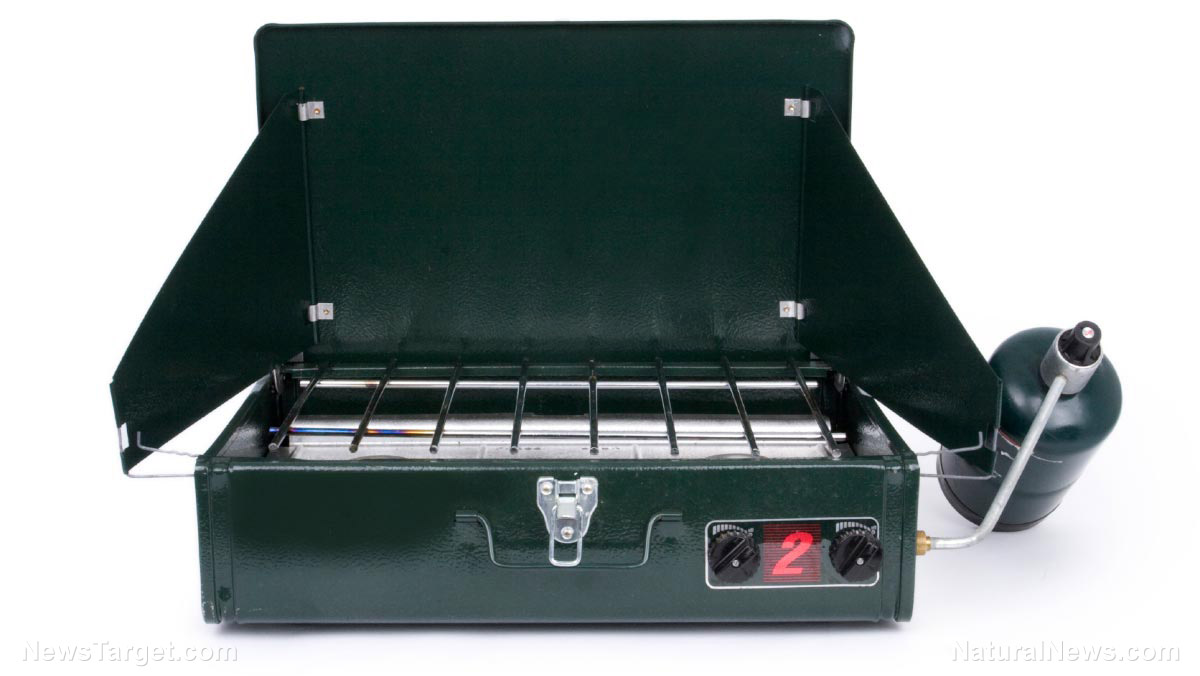
Advertisement
Preppers know that it’s important to have options for various survival scenarios.
For example, if you lose power, you will need a way to cook your food, especially if you have to stay indoors. After all, outdoor cooking methods will be hard to use when the weather gets bad. The options below don’t require gas or electricity, making them perfect for when there’s a power outage. (h/t to AskAPrepper.com)
Indoor cooking options
Consider these options if you’re looking for a smokeless cooking method:
- Alcohol stove – You can also use small camp stoves that use denatured alcohol indoors. The denatured alcohol for these stoves burn clean and should be safe to use indoors. You can try making your own stove out of a soda can, or you can buy them from camp stove retailers.
- Candles – With a tool to help you suspend cookware over a heat source, you can also use candles to cook indoors. When boiling water, you will need several large candles with multiple wicks. Go with all-natural beeswax candles that burn cleanly. Skip dyed, heavily synthetic, or scented candles.
- Canned heat (Sterno) – Canned heat, a.k.a. Sterno, can usually be found on buffet tables. They’re used to keep food warm, and you can also use them to cook indoors. Sterno cans have an alcohol-based fuel, and they burn cleanly. Individual canisters can burn for about two hours for continuous heating. Each Sterno canister is small enough to heat a small pot. For larger pots, use four or five heat cans. They’re perfect for indoor use when cooking or heating food. Additionally, canned heat is easy to store and portable.
- Car lighter stoves – A car cigarette lighter can be used to power a car lighter stove, but take note that this will quickly drain your car battery. Don’t turn on your car’s engine while it’s in the garage. This option is better for when you’re driving your car.
- Flame-less stoves – A manufacturer called Magic Cook produces a flame-less stove that uses a water-based chemical reaction. To cook with this flame-less stove, you need to add water to the heat pack to generate sustained heat for 15 to 20 minutes. This chemical stove doesn’t release carbon monoxide, but other kinds may release flammable hydrogen. This option is convenient when you don’t have electricity, but it requires pricey specialized heat packets, so it’s not a feasible long-term option.
- Hand warmers – Meal, Read-to-Eat (MREs) rations come with a chemical heat packet that can be used to warm food. It’s similar to those snap-activated hand warmer packets. Wrap a couple of hand warmers around canned food to heat them.
- Propane stove – A propane stove doesn’t require electricity to work, and it can be ignited using a match or a lighter. They also come with a fume hood that helps dissipate toxic fumes or gases produced during cooking. Always use a propane stove in a well-ventilated area to avoid carbon monoxide poisoning. (Related: Tips for the beginning prepper.)
- Wood stove/Fireplace – A Dutch oven can trap the heat inside the cast iron to create an oven from just about any heat source. If you have a fireplace, you can use cooking hardware like a grill, spit, or swing trivet. You can also wrap food in aluminum before you place them in the fireplace or wood stove.
With the options listed above, you can still cook indoors even if the power goes out or if you run out of gas.
Food safety during a survival situation
If you have to cook indoors, don’t forget these food safety tips:
- Cook food properly to destroy all bacteria. If you’re not sure, you can always refer to a cookbook, or you can verify the proper temperature online.
- Separate your food while you’re at the supermarket. Use separate cutting boards for fresh meats and poultry, and use a different one when cutting bread or for salad preparation. Separate all foods in the refrigerator, so raw items cannot contaminate other foods.
- When preparing food, always wash your hands thoroughly. Touching raw meat and not washing your hands can spread deadly bacteria.
You can read more articles about how you can stay safe when SHTF at Preparedness.news.
Sources include:
Submit a correction >>
This article may contain statements that reflect the opinion of the author
Advertisement
Advertisements
















